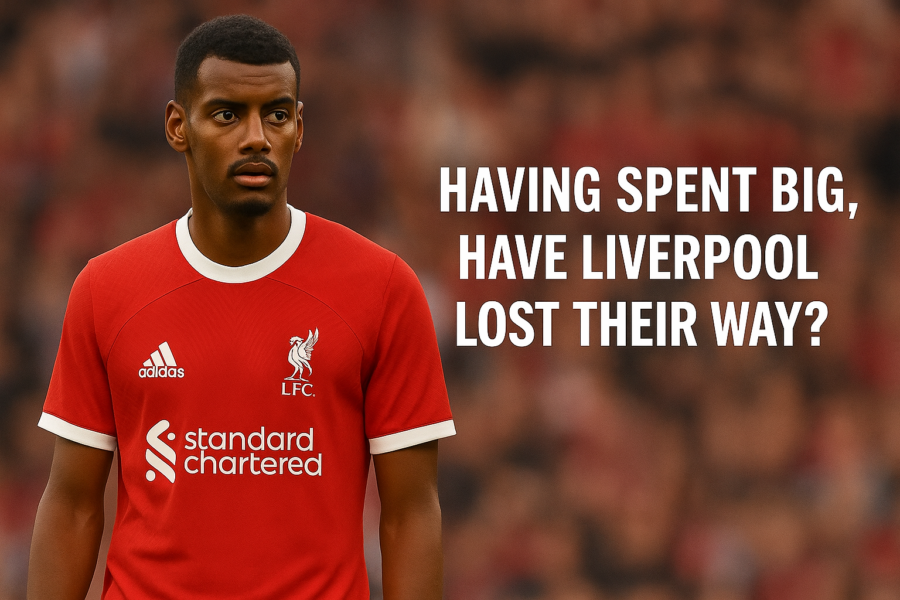Liverpool’s 2–1 defeat to Crystal Palace was their first loss of the season, but the fallout went beyond three dropped points. In a WhatsApp group chat with a friend afterwards, the discussion turned to something bigger: how Jürgen Klopp once built Liverpool through slow, careful evolution, while Arne Slot’s reign — now in its second season — has veered into revolution.
That contrast is what got me thinking about whether Liverpool’s summer signings, for all their quality, have unsettled the balance and the blueprint that once made the club great.
👉 For team context, see our Liverpool lineup vs Crystal Palace team news.
From Klopp’s evolution to Slot’s revolution
For much of Klopp’s tenure, Liverpool’s transfer policy was patient, deliberate, and smart. Young prospects were bought, developed, and often sold on for sizeable profit — think Dominic Solanke, Neco Williams, Jordon Ibe. When real money was spent, it was to fill glaring needs with the very best, as Virgil van Dijk and Alisson Becker proved. Alongside that, one or two proven Premier League players — Sadio Mané, Diogo Jota — were added and then improved under Klopp’s guidance. The team evolved, slowly but surely.
Slot’s first season in charge followed that same path. With only minimal tweaks, he largely relied on Klopp’s core and guided Liverpool to the title. It felt like continuity: smart, controlled, evolutionary football.
This summer, though, was different. Instead of another careful step forward, Liverpool’s summer signings arrived in numbers. Alexander Isak, Hugo Ekitike, Florian Wirtz, Jeremie Frimpong, Milos Kerkez — all excellent footballers, all exciting on paper. But do they address needs? Not always. Did they arrive in manageable numbers? No.
The result is upheaval, not evolution.
Too much, too soon
The warning signs were flagged before a ball was kicked. The Guardian cautioned that “changing almost half a team at once magnifies the risk” — and the early weeks suggest they were right. Arne Slot has been left trying to knit together a dressing room where expensive arrivals have to play, sometimes at the expense of trusted performers.
Liverpool have already lost the creativity and leadership of Trent Alexander-Arnold, who departed for Real Madrid in the summer. At left-back, Slot has opted for the less experienced but costly Milos Kerkez ahead of the reliable stalwart Andy Robertson. These choices underline how newcomers are reshaping roles that for years were central to Liverpool’s identity under Klopp.
The challenge with Liverpool’s summer signings is not their ability, but how quickly they were introduced into the side.
Fans, too, are uneasy. “All our new signings are way off the pace at the moment, yet Slot persists with them,” wrote one supporter. “We just seem so disjointed all the time.” It’s hard to disagree.
Even Steve McManaman, while praising the “numbers and options” that might be key to navigating a 60-game season, admitted depth only works if it is balanced. At present, Liverpool’s depth looks like excess.
The paradox of Liverpool’s summer signings
This isn’t about bad players. Far from it. Isak is an outstanding striker who has already scored in the League Cup. Ekitike has raw talent and is already scoring goals. Wirtz is a prodigy. Individually, they are exciting. Collectively, they don’t yet add up.
The problem is that their presence demands minutes. And when you shuffle too many cards at once, the deck loses its shape. Slot is gambling on chemistry that may take months to develop in a league that allows no breathing space. Meanwhile, defensive vulnerabilities remain — something Slot himself admitted after the Community Shield loss: Liverpool “need to tighten up defensively”.
What next?
Liverpool’s path forward requires patience, but also courage.
• Stagger integration: not every signing has to start every week.
• Meritocracy over price tag: reputations must not trump form.
• Lean on the old guard: players who embody the club’s DNA must anchor this transition.
• Clarity of roles: define who is first choice, who is rotation, and stick to it.
This summer’s rebuild was bold, ambitious, and expensive. It may yet succeed. But at Selhurst Park, we saw the cost of too much change too quickly. The club that once prided itself on evolution has plunged into revolution.
The signings are excellent. The question is whether Liverpool can turn brilliance on paper into a team that works on grass. Right now, that remains an open — and worrying — question.
What do you think — have Liverpool’s summer signings improved the squad or unsettled the balance? Share your thoughts in the comments below.

